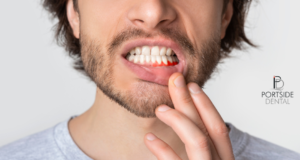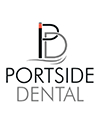Do you know how eating disorders can influence your dental health? While eating disorders mostly impact one’s mental and physical well-being, their consequences can reverberate, particularly in terms of oral health.
According to the National Eating Disorders Association, eating disorders are prevalent and necessitate prompt medical attention.
This disorder affects more than just your physical health; it can also have an impact on your social life, including your relationships with friends and family, your performance at work or school, and your overall well-being.
It’s also crucial to understand how these conditions impact oral health and why addressing them is essential for a healthier life.
What is Eating Disorder?
An eating disorder is a serious mental health condition characterized by unhealthy eating behaviors and distorted attitudes towards food, weight, and body image. It encompasses a range of conditions, including anorexia nervosa, bulimia nervosa, and binge-eating disorder.

Individuals with eating disorders often exhibit extreme behaviors like severe calorie restriction, binge eating followed by purging, or compulsive overeating. These disorders can lead to severe physical and emotional consequences, including malnutrition, electrolyte imbalances, and damage to vital organs.
It is essential for individuals with eating disorders to access professional help, such as therapy and medical treatment, to attain recovery and enhance their overall well-being.
Looking for Expert Dental Care?
If you’re experiencing dental health issues, it’s crucial to consult a trusted professional. Portside Dental in Newport is committed to providing the best patient care. We prioritize the well-being of each individual, ensuring that your dental health problems are addressed with precision and compassion.
Whether it’s routine check-ups, specialised treatments, or cosmetic procedures, patients can trust that they are in capable hands.
How Eating Disorders can Affect Dental Health?
| Tooth Decay | In individuals with eating disorders, particularly anorexia nervosa and bulimia nervosa, severe food restriction, and irregular eating patterns can result in nutritional deficiencies.
The lack of essential nutrients, such as calcium and phosphorus, can weaken tooth enamel, making the teeth more susceptible to decay. This can lead to cavities and other dental issues. |
| Gum Disease | Poor nutrition associated with eating disorders can compromise the immune system, making it harder for the body to fight infections, including those affecting the gums.
As a result, individuals with eating disorders are at an increased risk of developing gum disease, which can lead to symptoms like bleeding gums, gum recession, and even tooth loss. |
| Tooth Erosion | Bulimia nervosa, in particular, involves recurrent episodes of binge eating followed by purging through self-induced vomiting. During these episodes, the teeth are exposed to stomach acid, which can erode tooth enamel over time.
Tooth erosion can result in tooth sensitivity, discoloration, and a heightened vulnerability to cavities. |
| Dry Mouth | Dehydration is a common consequence of restrictive eating habits, as individuals with eating disorders often avoid consuming adequate fluids.
Dehydration can lead to dry mouth, a condition in which the salivary glands do not produce enough saliva. Saliva plays a crucial role in maintaining oral health, as it helps to cleanse the mouth, neutralize acids, and prevent tooth decay. Without sufficient saliva, the risk of dental problems increases. |
| Bad Breath | The combination of dry mouth and poor nutrition can lead to chronic bad breath, also known as halitosis.
This can be socially distressing and may impact an individual’s self-esteem and confidence. |

Preventive Measures
Preventing dental issues related to eating disorders is extremely essential. While addressing the underlying eating disorder is essential, taking proactive steps to safeguard your dental health is equally important. Here are some preventive measures:
- Early Detection and Intervention: Recognizing the signs of an eating disorder and addressing it early can prevent the progression of dental problems. Promote the importance of individuals seeking professional assistance for their eating disorders.
- Regular Dental Check-ups: Consistent dental visits are vital for the early detection of oral issues. Dentists can identify dental problems in their early stages and guide how to manage them.
- Rinse After Vomiting: If purging is part of your eating disorder, rinse your mouth with water or a fluoride mouthwash after vomiting to help neutralize stomach acids and reduce the risk of enamel erosion.
- Avoid Abrasive Toothbrushing: Brushing too vigorously or using a hard-bristle toothbrush can further damage weakened enamel. Opt for a soft or extra-soft toothbrush and use gentle, circular motions.
- Limit Acidic and Sugary Foods: Minimize consumption of acidic and sugary foods and beverages, as they can exacerbate enamel erosion and increase the risk of cavities.
Don’t hesitate to reach out to us for comprehensive and expert dental care. Your oral health is in capable hands at Portside Dental.


I like this web site very much, Its a very nice billet
to read and receive information.Leadership